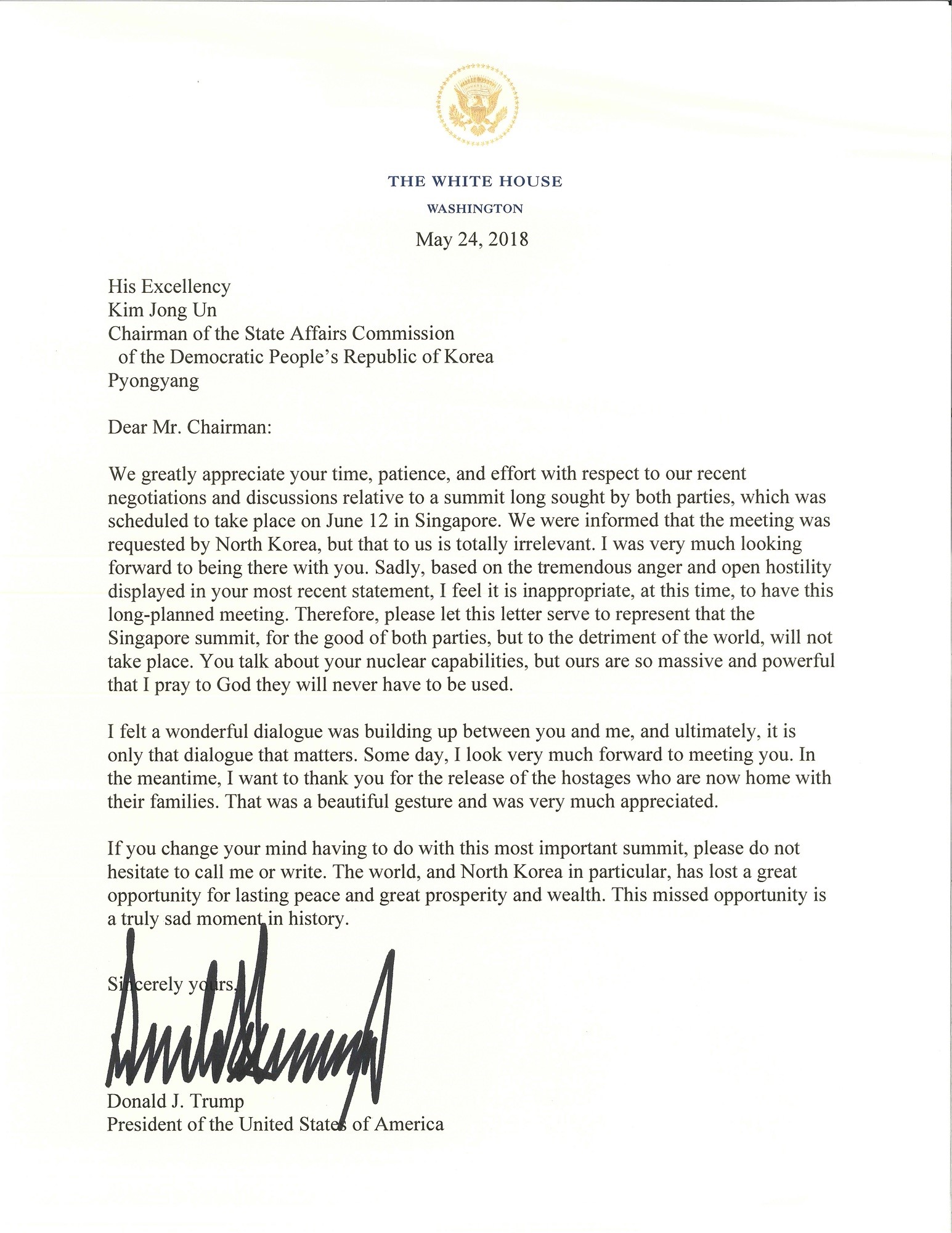OPINION
North Korea Part Two
Broadcasting Board of Governors Information War Lost
By The Federalist
With the Donald Trump-Kim Jong-Un U.S.-North Korea summit meeting now called off by President Trump at least for the time being, this is a follow-up on our commentary regarding a Washington Post op-ed piece by Amanda Bennett, Voice of America (VOA) director and Dong Hyuk Lee, chief of the VOA Korean Service:
Let’s give North Koreans the outside information they crave. By Amanda Bennett and Dong Hyuk Lee. The Washington Post, May 12, 2018.
As we pointed out in Part One of our commentary, Voice of America director needs to shelve her rhetoric on North Korea, telling the North Korean people what information they “crave” is from an outsider’s perspective, both presumptuous and unhelpful. It ignores the fact that the Kim family rule over the country is all most North Koreans know of political leadership with little or no practical experience with “freedom and democracy.” Regime change is something certainly not palatable to the Kim family and those who have benefited from their position at the top of North Korean government for decades. The job of the VOA director is not to comment on issues related to critical developments in U.S. foreign policy. The job of the VOA director is to make sure that the Voice of America covers these developments in line with the requirements of the VOA Charter.
Something else – which we didn’t touch on in our commentary – is that one cannot see North Korea in a vacuum. One important consideration is what the People’s Republic of China wants on the Korean peninsula. Leaving them out of the equation and solely looking at North Korea is a serious error in judgment and a sign of being less than politically adroit inside the Cohen Building. Indeed, it is a sign of gross naivety.
It is always important to state that we are well aware of the draconian methods and their consequences visited upon the North Korean people and outsiders by the Kim regime. But the question is how to move from rampant human rights abuses to one of far better conditions for the North Korean population. It’s not an overnight, wave the Broadcasting Board of Governors (BBG) magic wand and you have “freedom and democracy” and regime change. Things don’t work that way.
Indeed, we really wonder why Bennett would be crowing at all during one of the most sensitive moments in U.S.-North Korean negotiations.
In reading the op-ed piece, it is clear that Bennett and others are in some kind of rapturous time warp back to the 20th century. She extols what she believes were the agency’s successes in ending the Soviet Union and making inroads into China.
One gets the impression that Bennett thinks these “achievements” have some kind of perpetual lock on history.
The reality is something quite different.
One thing we should remember is that change is not always pre-determined nor pre-ordained. Change is constant motion, with nations large and small and with a total cumulative population of 7-billion.
We recall the crowing over the falsely labeled “Arab Spring” as one such example. The Western media made the gross assumption that the result of political upheaval in the Middle East would yield positive results.
It hasn’t.
Similarly, one should ask Bennett how things are going with Russia today.
As we have seen, the Russian state under (president for life) Vladimir Putin creates global tensions by returning to a posture of projecting Russian power regionally and internationally. Putin is both intelligent and clever. He knows his audience (the general Russian population). He knows that the esteem of the Russian state is important internally and externally. He is sophisticated in gauging how far he is willing to go to give Russians a measure of personal freedom. He also has a deep enmity for anything he believes is intended to undermine him personally or his government. And he oversees a robust cyber-warfare and disinformation apparatus.
And the same applies to China. The Chinese government follows a similar model. The Chinese leadership gauges just how far it is willing to go when it comes to personal freedoms and information. It is clear the leadership wants and needs a well educated core of citizens and that requires access to information that meets the needs of its citizens and helps to buttress Chinese national objectives. At the same time, it will control access to information which the government believes is destabilizing.
It is clear the agency relies on perceptions of long-ago triumphs that have receded well into the past and have also been long overtaken by contemporary events, losing or certainly diminishing their relevance.
Again, our message to Bennett and the agency is the same: stop the crowing and do your job. The job is the VOA Charter.
Otherwise, the Global Engagement Center awaits. And it may be a change that is necessary in place of runaway dysfunction inside the Cohen Building.
The Federalist
May 2018

